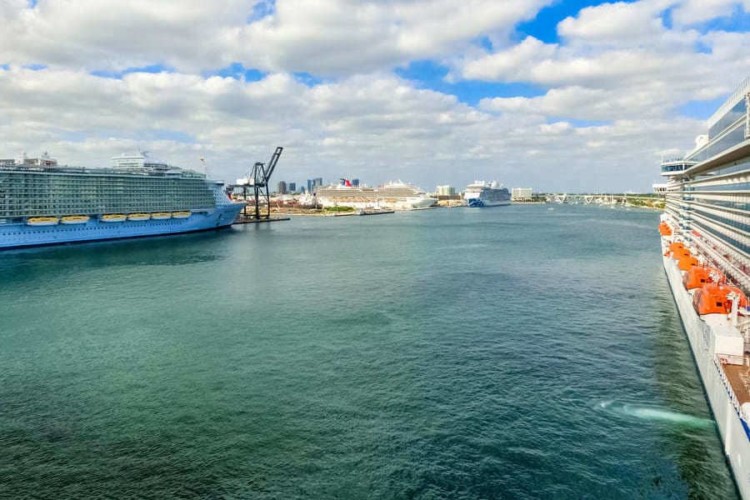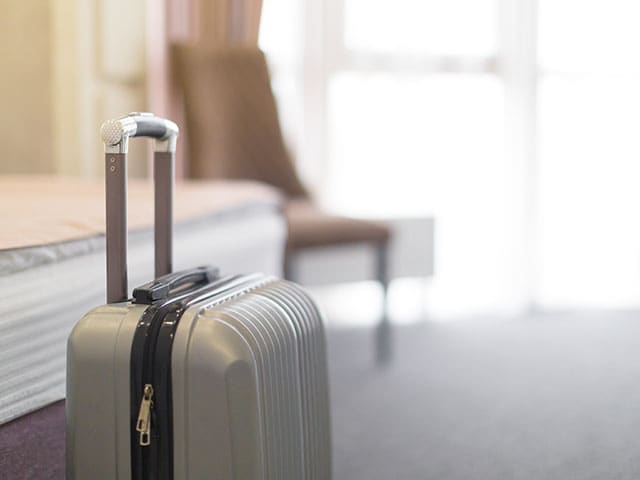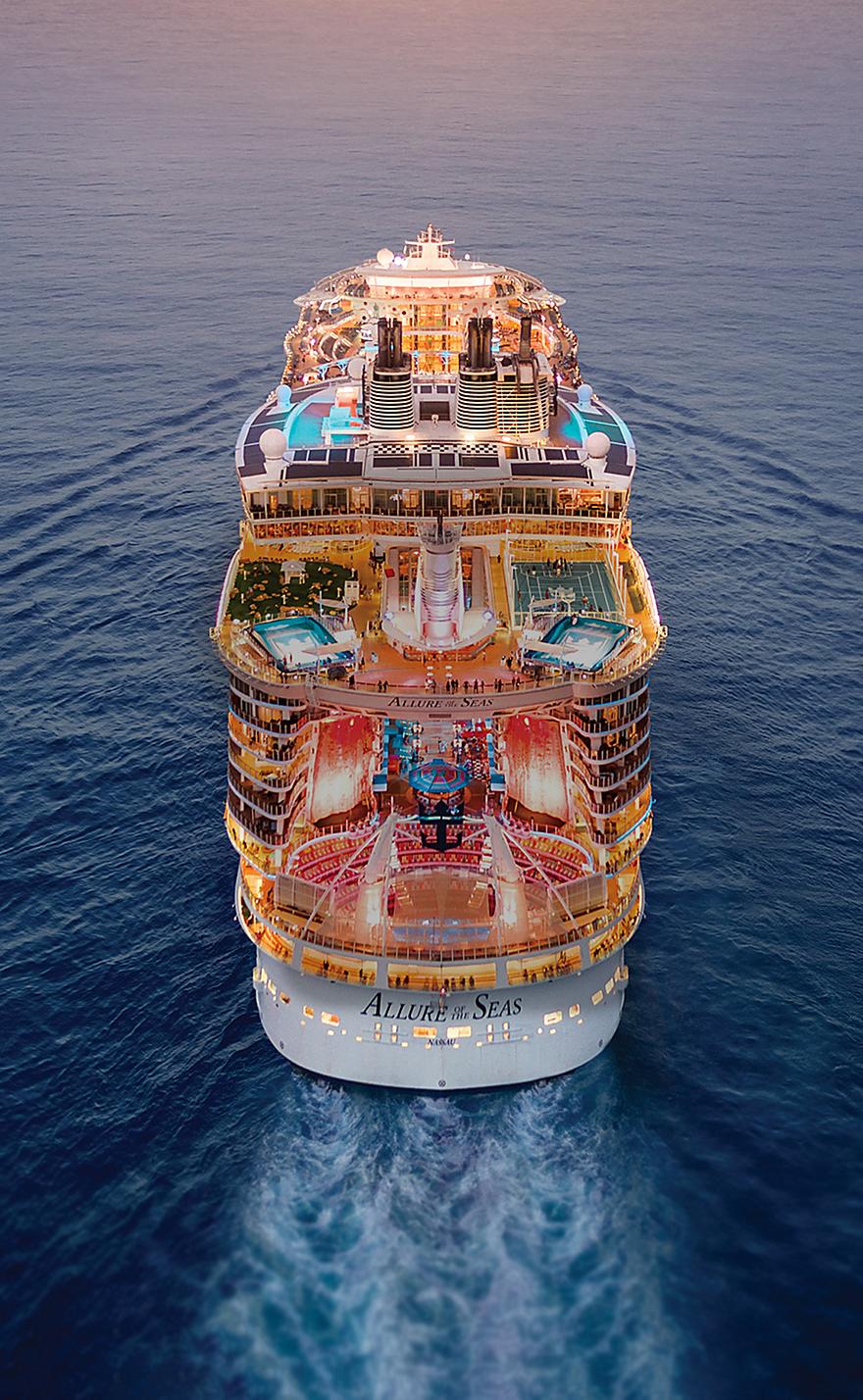
The cruise ship's medical facility is specifically designed for providing health care to crew members and passengers. There are usually separate reception areas for passengers and crew members, doctor's consultation rooms, dispensary, Xray room, and treatment spaces. These rooms are equipped with surgical instruments and sterile supplies. An inpatient area consists of one to three two-bed wards and a central nursing area.
Medical staffing on cruise ships
There is a wide range of medical staff onboard cruise ships. The medical staff can perform many tasks regardless of their size. These include prescription monitoring, medication monitoring, documentation, and emergency care. The doctor is also responsible to administer medications and coordinate logistics for referrals and evacuations. A wide range of tasks can be performed by medical staff, including administering medication or managing preventative healthcare programs for crew and passengers.
Most cruise lines have a medical facility located on the lower deck of the ship. There are nurses and doctors on call round the clock, as well as several beds for minor injuries and emergencies. Ship doctors and nurses are often trained to treat minor injuries, motion sickness, and respiratory symptoms. In certain cases, they may coordinate with local medical professionals to ensure proper care. A cruise ship's medical staff should not only have regular access to a doctor or nurse staff but also have COVID experience.

Cost of medical treatment
Cruise ships are not floating hospitals. However, their onboard medical services are more advanced than those found at shore hospitals. Infirmaries provide treatment for minor injuries and illnesses as well as stabilization of passengers until they can be transferred into a nearby hospital. Basic care and emergency care are provided round-the-clock. While medical care is not as extensive as that provided by a hospital, many common ailments can be treated by the nurses and doctors on board.
Most insurance policies do not cover medical expenses onboard, or out of the U.S., so a hospital visit to a cruise ship can be quite costly. Medicare is flexible, and will cover some costs as long as it is needed. If the ship is located within six hours of an American port, it will also cover ambulance costs. It may also cover services provided by connected providers and ambulance costs if the foreign hospital is closer to the resident's home.
Location of medical center
Although cruise ships don't have floating hospitals, there are medical facilities on board and staff trained to handle minor issues. There are usually several beds, stretchers and backboards available for spinal injuries. You can also find basic care on cruise ships, such as an emergency room for seasickness/motion sickness. Medical staff are available 24 hours a days, seven day a week.
An emergency situation on a cruise vessel can prove dangerous. If this happens, the medical team should be available to assist the patient. The medical team is equipped to treat minor ailments and serious emergencies. However, severe emergencies may require an evacuation to a nearby port. In such situations, the ship's management might request helicopter assistance or call for help from nearby vessels. If the evacuation is not possible, passengers should call 7-3000 for immediate assistance.

Qualifications for medical staff
A cruise ship's medical staff must be highly educated and have extensive experience in emergency medicine. Every emergency should be attended by a board-certified physician. Also, nurses must have at least three years' experience as post-graduates. Additionally, all staff must be certified in advanced life support and be flu and COVID-infected. The medical staff of cruise ships must know how to use computers software.
Nurses working on board a cruise ship must be highly qualified and have the training required by the country they are traveling to. It is not necessary to have a bachelor's level in nursing, but it is strongly recommended. It is necessary to have a RN license, and a certification in advanced cardio life support. Furthermore, nurses on cruise ships must have at most three years experience in emergency, acute, and specialized care. This typically refers back to working in a hospital environment.
FAQ
Do I need to dress up on a cruise?
You don't necessarily need to wear fancy clothes or formal attire. You just need to be comfortable and ready relax.
Is there anything negative about cruising?
You should consider the pros and cons to cruising. Some people don't like spending their entire vacation on boats. Others may prefer to stay near shore or in hotels. Some may not like being so far away from the land. However, these fears can be easily overcome by choosing a cruise that includes plenty of time ashore.
Where should I go on my cruise?
You can choose to travel to different ports of calling if this is something you are interested. These details can also be used to help you narrow down your search. For instance, if you love history, you might want a cruise that visits places such as Alaska, Bermuda, Canada, England, France, Greece, Italy, Mexico, Spain, Turkey, etc. A cruise that includes places such as Jamaica and Tahiti can be a good choice if you're more into water sports and beaches.
Is it necessary to tip my Cruise Director
This varies from cruise line to cruise line. Some cruise directors do receive tips while some don't. When you board the cruise ship, ask your Cruise Director if they need tips. They will often tell you if tips are expected.
What does a cruise vacation cost?
The average cruise vacation cost is $1,000 per person, plus taxes and fees. The average cost for a family vacation is $4,200. This includes all meals.
What's a cruise ship vacation like.
An all-inclusive vacation on a cruise ship is the best description. You are taken care of at all times. You can access everything from restaurants, spas, entertainment, activities, excursions, etc. You can enjoy your stay and also relax. You only need to bring your sense of adventure.
How do I select the right cruise line for me?
It is easy to find the best cruise line. Decide what kind of cruise you want to take. You might prefer a smaller intimate cruise, or one with many passengers. You should also consider how much money your budget allows you to spend. You might be interested in cruises that include all-inclusive options if you are looking for something cheaper. You won't have to worry about extra costs for entertainment, food, and drinks. Make sure you have good family programs in place if your family is planning a cruise.
Statistics
- You'll need to budget around $80 per person per day for this option – and an additional 18% gratuity. (travel.usnews.com)
- If you're traveling alone, you may also need to factor in a single supplement, adding up to as much as 100% of the cruise fare. (travel.usnews.com)
- The line estimates savings of 50% when you purchase this bundle. (travel.usnews.com)
- You can save 15% off the total price if you book in advance of your trip. (travel.usnews.com)
External Links
How To
How do you plan your first Cruise?
Like any other trip, planning a cruise requires you to think about many factors, including where to go, what activities, how much to budget, and what to do with your money. You should be aware that there are important differences in the planning of your first cruise, especially if this is your first time. For example, cruises typically last much longer than land vacations (up to 3 weeks), so you won't want to leave anything out! These tips can make your vacation easier.
-
Start early - Book your cruise at least 6 months before departure. This way, you can get great deals and avoid crowds. You'll also have ample time to research the ship, its itinerary, ports, and other activities. You may even be able to find a bargain on airfare.
-
Pick a destination. It doesn't really matter what port you choose, just choose one that appeals. Many reasons people enjoy cruising to different places. Some enjoy exploring cities while others prefer relaxing on board. No matter what boat you are on, it is important to remember the type of destination that you wish to visit. The Caribbean is the most popular destination, followed closely by Europe or Alaska.
-
Book a suite. Suites include extra space, a private terrace, and additional amenities. They are usually available from $100-$300 per night, depending on the size of your room and the availability of suites during your sailing date.
-
You should always check the weather forecast. Cruising is often associated in warm tropical climates. Check the weather forecasts for days that you will be visiting ports. It's unpredictable in the ocean, especially in Antarctica or Alaska, so it is important to be aware of what the weather might be like before you book your cruise.
-
Pack light - When packing for your cruise, limit yourself to only 10 items. You don't want to have a suitcase full of clothes and shoes. Make sure to only bring what you really need. Consider layering clothing since you won't always have access to laundries onboard.
-
Do your research. Before you buy tickets, make sure to read online reviews. Be sure to review their policies regarding pricing, the services they provide, as well and whether cancellation policies make sense.
-
Do not miss these must see spots. Visit each port at minimum once. Every location has its own charm and culture so make sure you visit all of them.